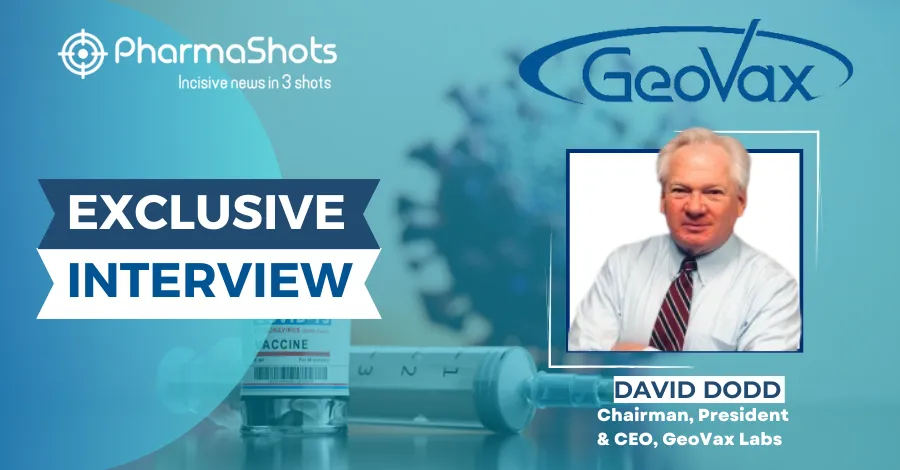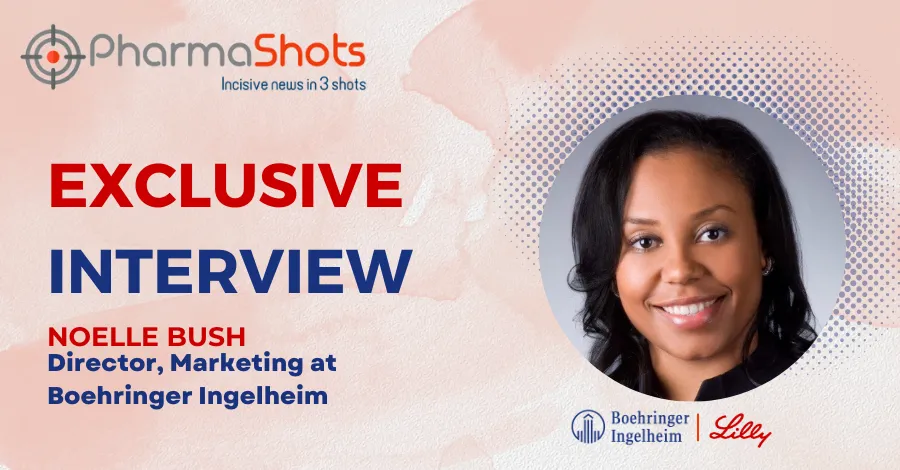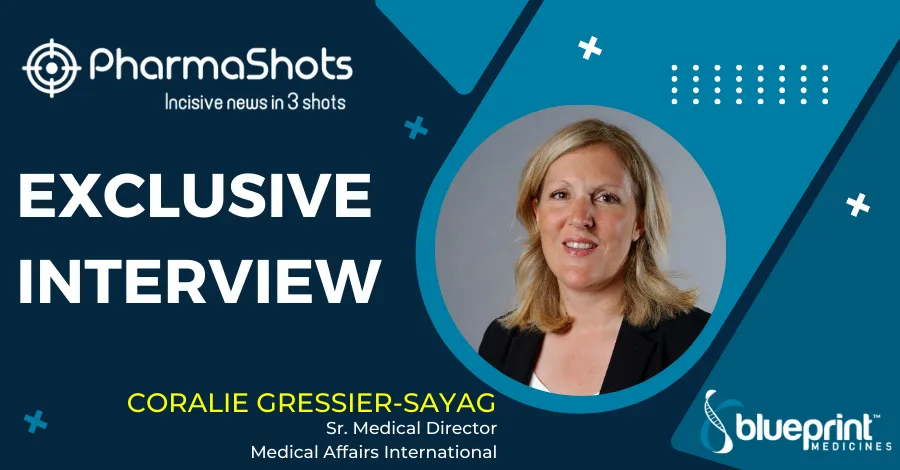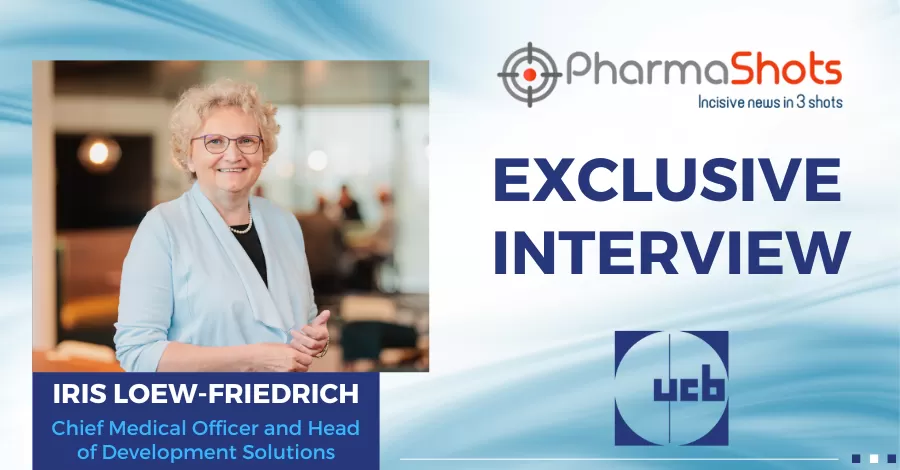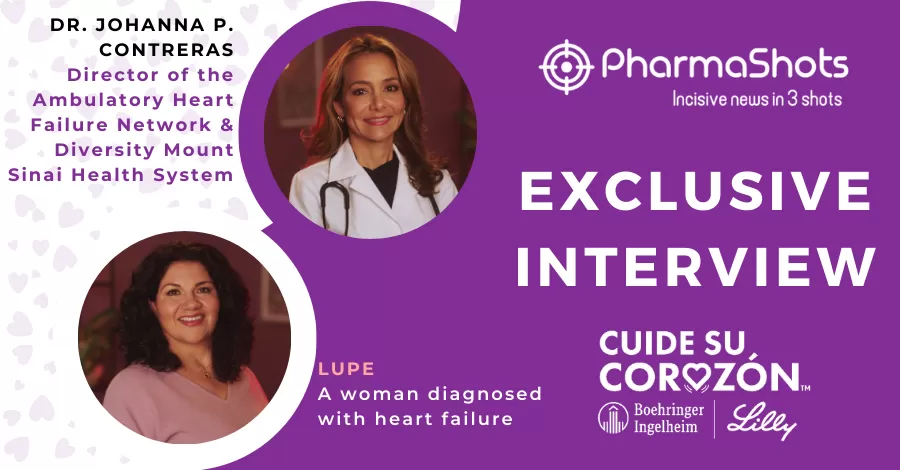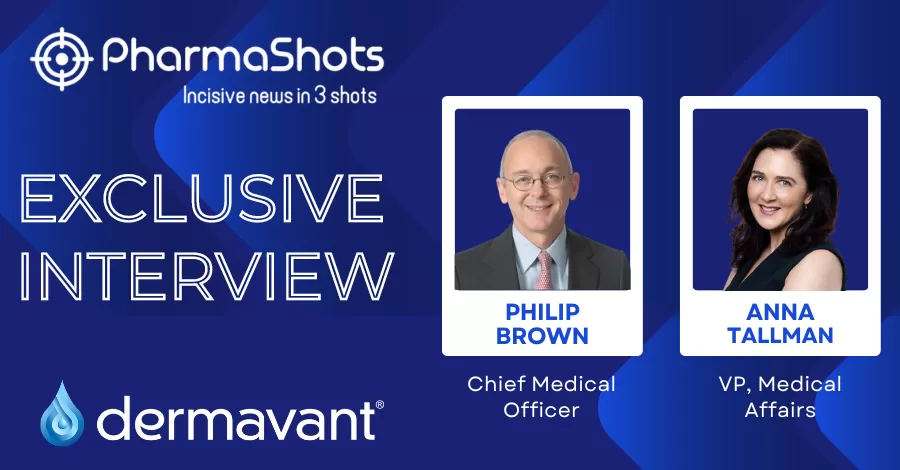
Stacey Williams, Vice President, Marketing, Dermavant Shares Insights on New Campaigns for Adults with Plaque Psoriasis
Shots:
- Stacey talked about the launch of its first streaming commercial as part of a direct-to-consumer advertising campaign for adults with plaque psoriasis
- The “Topical Uprising” campaign focuses on the patient journey and taps into the frustrations & self-conscious of living with plaque psoriasis that helps patients to demand more from their topical plaque psoriasis treatment
- The interview shows how Dermavant is promoting advertising campaigns to commercialize its innovative therapeutics in immuno-dermatology
Smriti: To begin with, please shed some light on the details (MOA, ROA, formulations, etc.) of VTAMA cream?
“VTAMA cream’s innovative formulation is designed to be non-greasy and cosmetically elegant, and about 90% of patients reported that VTAMA cream absorbs quickly into the skin”
Stacey Williams: Following more than 25 years of minimal innovation in the topical psoriasis treatment space, VTAMA® (tapinarof) cream, 1% was approved by the FDA in May 2022 to treat adults with mild, moderate, and severe plaque psoriasis. VTAMA cream’s active ingredient, tapinarof, is an aryl hydrocarbon receptor (AhR) agonist, and VTAMA cream is the first and only FDA-approved AhR agonist in the U.S. The specific mechanisms by which VTAMA cream exerts its therapeutic action in psoriasis patients are unknown. However, AhR is found throughout the body, including in immune and skin cells, and is thought to play a significant role in maintaining skin homeostasis.
Until recently, there were very few topical options available for treating plaque psoriasis long-term. Typically, some patients start with topical steroids; however, these can be challenging, as many are limited by where they can be applied on the body and for how long and how often they can be used. VTAMA cream is not a steroid, and it is backed by extensive clinical trial data supporting its favorable safety and efficacy profile — even with long-term use, as demonstrated up to 52 weeks in clinical trials, and on sensitive and difficult-to-treat skin areas, such as the face, groin, and underarms.
VTAMA cream’s innovative formulation is designed to be non-greasy and cosmetically elegant, and about 90% of patients reported that VTAMA cream absorbs quickly into the skin.[i] It does not contain any fragrance, petroleum jelly, para-aminobenzoic acid (PABA), parabens or gluten. Within four months of receiving FDA approval, VTAMA cream became the #1 prescribed branded topical treatment for plaque psoriasis in adults* — which we believe is a testament to the unmet need the treatment may help fulfill for patients and their healthcare providers.
Smriti: Brief us about the study design of the P-III clinical trial evaluating VTAMA cream.
Stacey Williams: PSOARING 3 was a long-term, open-label, extension study that evaluated the safety and efficacy of VTAMA (tapinarof) cream, 1% for the treatment of plaque psoriasis in adults. Patients in the study had previously completed treatment with VTAMA cream or vehicle in either the PSOARING 1 or PSOARING 2 Phase 3 pivotal efficacy and safety study. PSOARING 3 consisted of up to 40 weeks of treatment with VTAMA cream and a four-week safety follow-up period. As such, patients who received the drug during PSOARING 1 and PSOARING 2 and who completed PSOARING 3 may have received treatment with VTAMA cream for up to 52 weeks.
This study was unique because it required adult patients to continue dosing until complete disease clearance (PGA = 0), and then the patients were followed off therapy until a worsening of psoriasis occurred, defined as PGA ≥ 2. More than 90% of eligible patients who completed PSOARING 1 and PSOARING 2 enrolled in PSOARING 3 — evidencing their desire for access to the product.
Smriti: Highlight the key findings obtained from the P-III clinical trial evaluating VTAMA cream based on which your company received the approval.
Stacey Williams: The FDA approval of VTAMA cream is based on results from the pivotal Phase 3 clinical trial program (PSOARING 1 and PSOARING 2), as well as the 40-week long-term, open-label extension study (PSOARING 3). The primary endpoint in PSOARING 1 and PSOARING 2 was the proportion of patients who achieved treatment success, defined as a PGA score of “clear” (0) or “almost clear” (1) and at least a 2-grade improvement from baseline.
Treatment success was achieved at week 12 by 36% of patients using VTAMA cream in PSOARING 1 and by 40% in PSOARING 2, compared with 6% for patients using vehicle in both trials. 73 patients who achieved complete disease clearance (PGA=0) in PSOARING 1 and PSOARING 2 and entered PSOARING 3 stopped VTAMA cream treatment and maintained “clear” (PGA=0) or “almost clear” (PGA=1) for a median time to first worsening (PGA ≥ 2) of approximately four months.
Smriti: Give our readers a brief detail about the Topical Uprising campaign. How does this campaign help empower patients living with plaque psoriasis?
“Inspired by the stories of real patients, the “Topical Uprising” campaign taps into the frustrations of living with plaque psoriasis and helps empower patients to demand more from their topical plaque psoriasis treatment”
Stacey Williams: Psoriasis impacts approximately 8 million Americans, and plaque psoriasis is the most common form of psoriasis — affecting about 80 to 90% of people with psoriasis. Until recently, there were very few topical options available for treating plaque psoriasis long-term. Typically, some patients start with topical steroids; however, these can be challenging, as many are limited by where they can be applied on the body and for how long they can be used.
Inspired by the stories of real patients, the “Topical Uprising” campaign taps into the frustrations of living with plaque psoriasis and helps empower patients to demand more from their topical plaque psoriasis treatment. The streaming commercial conveys the psychological and emotional toll of the condition while standing apart in a sea of ads for injections and pills to treat plaque psoriasis — despite the fact 66% of prescriptions written annually for psoriasis are for topical medications.
By highlighting these frustrations, the streaming commercial gives adult patients who use topical plaque psoriasis treatments — aka the “silent majority” — a voice, allowing them to feel heard and letting them know a different topical treatment option is available.
Smriti: What added benefit does relating real stories of patients with plaque psoriasis provide for the outreach of VTAMA cream?
“By drawing from real patient stories, we wanted to convey these frustrations and the psychological and emotional toll of the condition in order to show patients that they’re not alone while also giving them a platform to feel heard”
Stacey Williams: For more than 25 years, many people with plaque psoriasis have endured a frustrating trial-and-error process trying to treat the condition with topical products. By drawing from real patient stories, we wanted to convey these frustrations and the psychological and emotional toll of the condition in order to show patients that they’re not alone while also giving them a platform to feel heard. The “Topical Uprising” campaign is an important part of our efforts to raise awareness among adults with plaque psoriasis and help empower them to demand more from their topical plaque psoriasis treatment and talk to their healthcare providers about the first novel chemical entity and steroid-free topical treatment approved for plaque psoriasis in more than two decades.
Smriti: What makes VTAMA cream a better option than the conventional treatment options available (injections and pills) for adult patients with plaque psoriasis?
Stacey Williams: While there are no head-to-head studies comparing VTAMA cream to other topicals, injections or pills, it’s important to note that 66% of prescriptions written annually for psoriasis are for topical medications, and only 20% of plaque psoriasis patients are candidates for biologic drugs. Unfortunately for plaque psoriasis patients, the majority of TV advertising focuses on injections and pills, which is why we believe the “Topical Uprising” campaign and commercials give topical plaque psoriasis patients — aka the “silent majority” — a voice, allowing them to feel heard and letting them know that the topical treatment option they may have been waiting for — for more than 25 years — is here.
Applied once daily to affected skin, VTAMA cream is the first and only steroid-free topical medication in its class in the U.S. — approved for adults with mild, moderate or severe plaque psoriasis. It is backed by extensive clinical trial data supporting its favorable safety and efficacy profile — even with long-term use, as demonstrated up to 52 weeks in clinical trials, and on sensitive and difficult-to-treat skin areas, such as the face, groin, and underarms.
Given its favorable safety and efficacy profile and its rank as the #1 prescribed branded topical treatment for plaque psoriasis in adults*, we believe VTAMA cream has the potential to change the way plaque psoriasis is treated today — serving as a first-line topical therapy for adults with mild, moderate or severe plaque psoriasis.
Smriti: Are there any other products currently being evaluated under your development pipeline for the treatment of plaque psoriasis?
Stacey Williams: We believe VTAMA cream has the potential to make a difference in the lives of adult patients and healthcare providers by improving plaque psoriasis. As we look ahead, we will continue to leverage VTAMA cream’s active ingredient, tapinarof, to understand how it might be reapplied to other conditions to help as many patients with dermatological issues as possible.
In September 2021, we dosed our first patient in a pivotal Phase 3 clinical trial program (ADORING 1 and ADORING 2) for VTAMA cream for the treatment of atopic dermatitis in patients aged 2 years and older. In November 2022, we announced highly favorable results from a pediatric maximal usage study of VTAMA cream in children as young as two years old with atopic dermatitis — in which we observed low to no systemic exposure, a low incidence of adverse events, and an overall favorable safety profile. We expect to receive topline Phase 3 clinical trial results in the first half of 2023.
Smriti: Is there any study in place or planned which has head-to-head comparison of VTAMA cream results vs any other approved treatment options such as Humira/ Cosentyx/ Tremfya among other options?
Stacey Williams: No head-to-head studies are available to date to compare VTAMA cream with other treatment options. That said, we are confident in the potential of VTAMA cream, as the first and only steroid-free topical medication in its class in the U.S. — approved for adults with plaque psoriasis in May 2022 following more than 25 years of minimal innovation in the topical psoriasis treatment space — and the #1 prescribed branded topical treatment for plaque psoriasis in adults.
Smriti: What kind of HCP education and patient education programs is Dermavant organizing to help spread the word (conventional or digital)?
Stacey Williams: The “Topical Uprising” commercial is part of a larger, surround-sound campaign that includes streaming music service ads, social media ads on platforms where patients are active, and digital ads and partnerships on popular websites. The streaming commercial will show up through custom partnerships with streaming vendors, such as Roku and Paramount+ and engage different audiences.
About the Author:

Stacey Williams is the Vice President, Marketing at Dermavant. She is a marketing leader with more than 25 years of experience in healthcare sales and marketing leadership roles. Her true passion is finding the intersection of clinical data and strategy in order to move people to take action for better outcomes. Prior to joining Dermavant, Stacey was the Vice President of Marketing for Ortho Dermatologics, a Division of Bausch Health Inc., leading the marketing for a large diverse portfolio of skin care products. Additional experience spans from large pharmaceutical to small venture-funded device. Stacey graduated with a bachelor’s degree from Tulane University.
Related Post: Philip Brown & Anna Tallman of Dermavant Shares Insights on the Approval of its Topical Treatment for Plaque Psoriasis
Tags

Senior Editor at PharmaShots. She is curious and very passionate about recent updates and developments in the life sciences industry. She covers Biopharma, MedTech, and Digital health segments along with different reports at PharmaShots.




